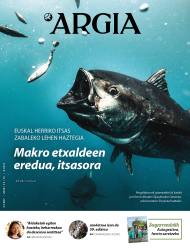Non-concepts
The understanding and interpretation of the mathematical language is what is important in the learning process, at least it is what we say to our students. The language of mathematics is universal, and in general, the margin of error for interpretation tends to be small. We would hardly draw a triangle after reading the definition of the concept of square, for example. And no one has been astonished to understand the relationship between the diameter of any circumference and the perimeter: the pi number. Mysterious as magical.
However, within this broad field that we call scientific knowledge, there are also concepts that generate diverse interpretations in society. In the economic field, for example, development can be a good example. In the middle of the last century, the development of a territory was associated with Gross Domestic Product. Over time, and taking into account the multiple ecological and social implications derived from an emerging economic system, the concept of development was associated with themes such as life expectancy, schooling, the theory of capabilities proposed by the Nobel Prize winner Amartya Sen, or sustainability. This last concept, at the same time, has given much to talk about in recent years. The United Nations also proposed it as the title of the 2030 roadmap to promote the development of the countries of the world, with seventeen targets and 169 targets. The level of these objectives and targets reflects, in any case, the difficulty of landing on the concept of sustainability. At the age of five, what word will we use as the surname of this concept of development when we have suspended the achievements of these objectives? Bolo-bolo: regenerative development (regenerative development?) Better if I leave it to translators).
What do we talk about when we talk about climate change? I feel that more than in the roots, the look is in the branches, more than in the sources of the disease, the symptoms soften
Focusing on the words we use to explain what happens in reality, economist Naredo talks about “no concepts” in his book The Exhausted Criticism. According to this author, we have been creating discourses and political rhetoric to describe the ecosocial crises; sometimes, without mentioning the keys that are at the root. The solutions agreed at eleven summits – almost always surface plumbers – have not been credible, nor viable.
In order to explain this issue, I find the head of the COP29 meeting held in mid-November in Azerbaijan really enlightening: in order to avoid the problem of climate change, it has been agreed to make a contribution of USD 300 billion from the so-called richest provinces to the calls of the South, which are the place of the most dramatic consequences. Many have voiced the gauntlet and outrage of the people, who have declared that this amount of money is tip.
We certainly need a greenhouse effect to live on Earth. But science has taught us, pedagogically and clearly, over and over again, that human practices generate excessive CO2 emissions, and that this effect accelerates exponentially. We all know that it is impossible to offset that impact with money, the discharges will not go away. Even though the debate feels distant, it also concerns us. In the speeches we are talking about the fight against climate change, the need to make the world more sustainable, the care of the environment… But what are we talking about? I feel that more than in the roots, the look is in the branches, more than in the sources of the disease, the symptoms soften. If we want to build a social and ecological economy, we will have to overcome the economic vision that we have internalised. It would force us to define the roots of the problems, probably trampling our own.
Bidali zure iritzi artikuluak iritzia@argia.eus helbide elektronikora
ARGIAk ez du zertan bat etorri artikuluen edukiarekin. Idatzien gehienezko luzera 4.500 karakterekoa da (espazioak barne). Idazkera aldetik gutxieneko zuzentasun bat beharrezkoa da: batetik, ARGIAk ezin du hartu zuzenketa sakona egiteko lanik; bestetik, egitekotan edukia nahi gabe aldatzeko arriskua dago. ARGIAk azaleko zuzenketak edo moldaketak egingo dizkie artikuluei, behar izanez gero.
We Basques move our feet behind the witness of Korrika to proclaim that we want to survive as a Basque people in favor of our language, with the aim of the Basque Country we desire.
The tipi-tapa is the first step taken by a migrant person who leaves his homeland in Africa,... [+]
And for another year, the unions have organized prefabricated strikes for us. And we, individually, will decide whether or not to join the strike, without the need for any assembly at the school.
The strike model that I was taught is no longer in vogue, it seems. In my... [+]
Life surrounds everything, it is limited and fragile. To live good lives, it seems to me that the body knows what to do, while the mind, although it knows (when it is well informed), often sees the body deliberately silence. In this silence the mind opens itself to relations... [+]
Eroso gaude ingurunea gure egoera fisiko/emozionalera egokitzen denean. Besteak ni kontuan hartu nauenean, izan gizaki bat, objektu bat, espazio bat. Erosotasunaren klabea produktu eta espazio diseinuan beharrizan handi gisa sartu da, erosotzat jotzen dena erosgarria delako... [+]
Nafarroa Arenan Mitoaroa ikusten izandako lagun batek “telurikotzat” jo zuen entzun-ikusi-sentitutakoa. Niri ere hala iruditu zitzaidan telebista medio etxetik hauteman nuena.
Pentsa daiteke Mitoaroak piztutako grinak eta atxikimenduak proiektuaren ikusgarritasuna... [+]
It is the habit of making decisions that will change our lives with the beginning of the new year. We make lists on three points: one, more sports practice; two, seeing old friends more often; three, going back to Iceland, real and metaphorically. As the months go by, we realize... [+]
Zirkulazioan lehentasunek garrantzi handia dute. Gidatzeko ikasten dugun lehen gauzatakoak dira: biribilguneak eta STOPak menperatu ezean nekez lortuko dugu gidabaimena.
Hala ere, lehentasunak ez dira kontu neutroak, eta historiak eta interes kontrajarriek aldatu izan... [+]
Since Benito Lertxundi, who told us that he will leave the scenes for ever, we have been there for several weeks, and since then many of us have felt orphans in one way or another, with a sense of loss or abandonment, sad. To Iruindarro, at least, we will remain forever honored... [+]
There are three knots that complicate our coexistence in the Basques, and for many years, despite our patience and determination, we are unable to break free from these ties. There are at least three knots of the moment: prisoners, Basque, immigrants.
With the new year we are... [+]
Today, January 21, is a day to remember and reflect on an interesting ephemeris of our recent history. It is 50 years since the lockdown of 47 workers from Potase in Navarre. This lockdown, which lasted fifteen days, caused a general strike in Navarre, the Department of the... [+]
A couple of weeks ago, a number of data from Norway was published. In this country of Northern Europe electric cars have predominated, being the Tesla brand the most sold, with 90% of recyclable energy consumed there. On the contrary, Norwegian public enterprises have no problem... [+]
These were my last words when we left, held hand in your deep breathing sleep. Your heart stayed forever without a special, simple, dignified pain. As you want and demand. How we want and respect.
Already a month before the arrival of winter, the last days of the longest night,... [+]
Today, the voices of women and children remain within a culture that delegitimizes their voices, silencing their experiences, within a system aimed at minimizing or ignoring their basic rights and needs. A media example of this problem is the case of Juana Rivas, but her story... [+]
On Tuesday, the sentence was released against five young people from Lapurdi, convicted of belonging to Segi. Fifteen months in prison for reversal to two young people, with a fine of EUR 500 each; 140 hours of forced labour and EUR 500 fine to two other young people; and,... [+]



















.jpg)